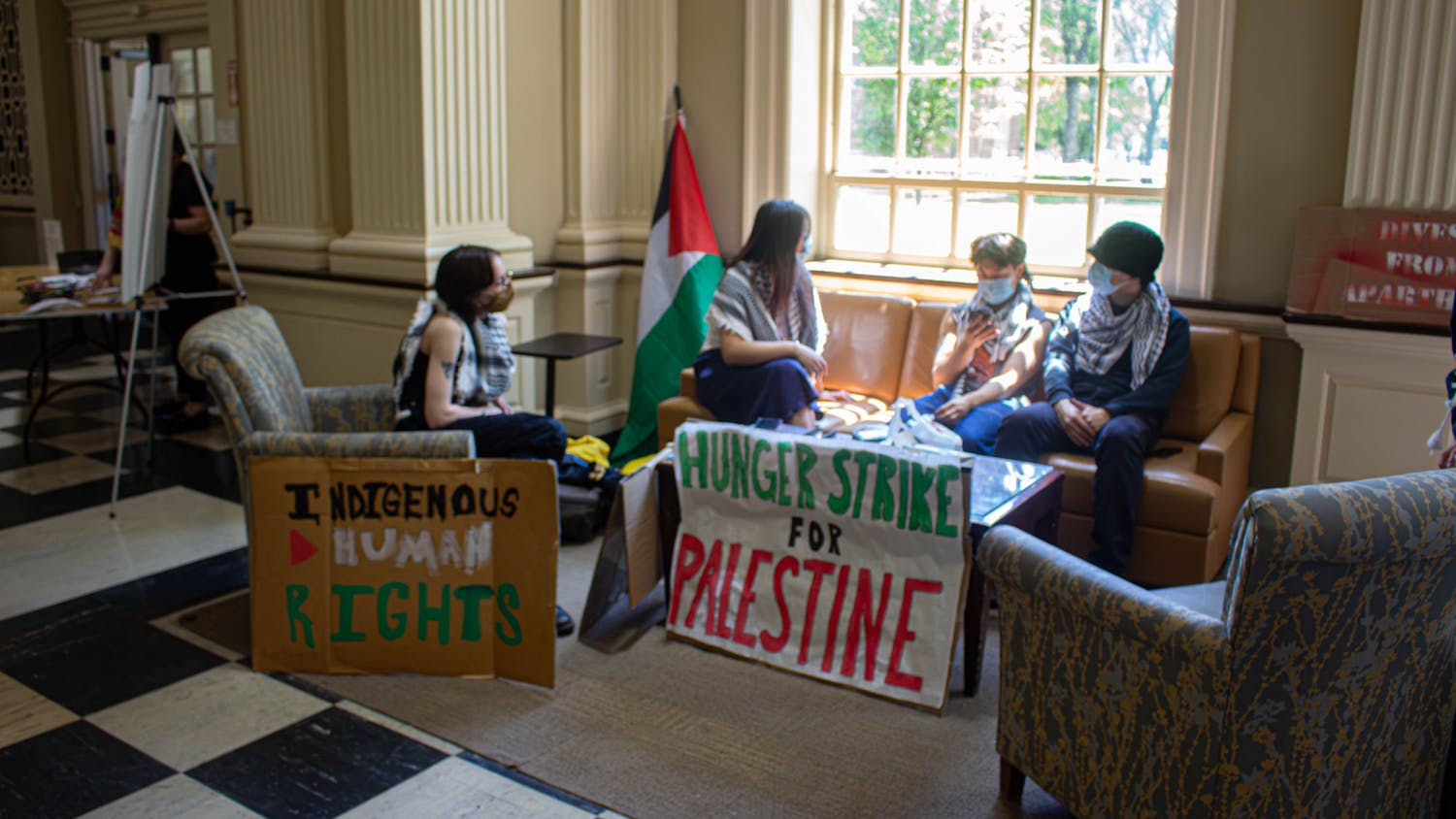Four members of the College's Board of Trustees met with about 25 professors on June 9 to discuss the Board's decision to keep the Army Reserve Officer Training Corps.
Those at the meeting said the discussion was helpful and informative though no agreements were made and that Chairman E. John Rosenwald said the Board would not reverse its April 16 vote to continue the program.
College President James Freedman, who attended the meeting between faculty members, Rosenwald and Trustees David Shipler, Anne Fritz-Hackett and Steven Bosworth, said Wednesday night he felt the Trustee-Faculty relationship was "on the mend" after the ROTC decision alienated the faculty by ignoring their stand against ROTC.
The Board voted to continue ROTC after their Spring term meeting in April, despite two almost-unanimous Faculty votes to kill the program because it discriminates against gays, lesbians and bisexual students at Dartmouth. The Board, in its decision, admitted the program discriminates against homosexuals.
The Faculty of Arts and Sciences overwhelmingly voted on May 16 to request the meeting with the Trustees to "explain their vote" to continue ROTC. The Faculty's invitation stemmed from concern that the Trustees never fully explained their April decision.
"What I had hoped was that the Board of Trustees would be able to hear the voice of the faculty, and that happened in abundance," Freedman said. "The faculty really just stated their views."
Despite the communication English Professor Peter Saccio said he felt "the Trustees did not have a great deal to say for themselves. They don't see the contradiction. They didn't have any line of argument with which to defend or support themselves."
Religion Professor Susan Ackerman said speaking with the Trustees highlighted the gap between the two positions.
"While Dartmouth trustees have a role to play at the national level, we have to be more with the College," she said. "They are more interested in the national and political pictures, but it is us who have to wrestle with the day-to-day life at Dartmouth."
She added that the Trustees did not explain their decision or the process by which the Board reached its decision to continue ROTC.
But Rosenwald, in a telephone interview from New York City yesterday, was more optimistic and said the Trustees did explain how they reached the decision.
"First of all, we wanted them to know from us that our decision had been taken with considerable analysis and conversation," he said.
English Professor Tom Luxon said the Trustees lacked depth in their analysis and that there was "definitely something missing in their look at the issue."
According to those involved, some benefits arose out of the meeting despite no resolution.
Saccio said Freedman told him that "the Faculty mopped up the floor with the Trustees." Freedman said the conversation was private but confirmed that the "four Trustees were very impressed with the faculty presentation."
Rosenwald said, "I indicated that I hoped we could come together to discuss things in this type of forum without the heat."
Faculty members interviewed also said the one good thing to come out of the meeting was the ability to present their views to the Board.
"We are educators," Ackerman said. "We tried another way of education and teaching with the Trustees and I think it was more successful."



